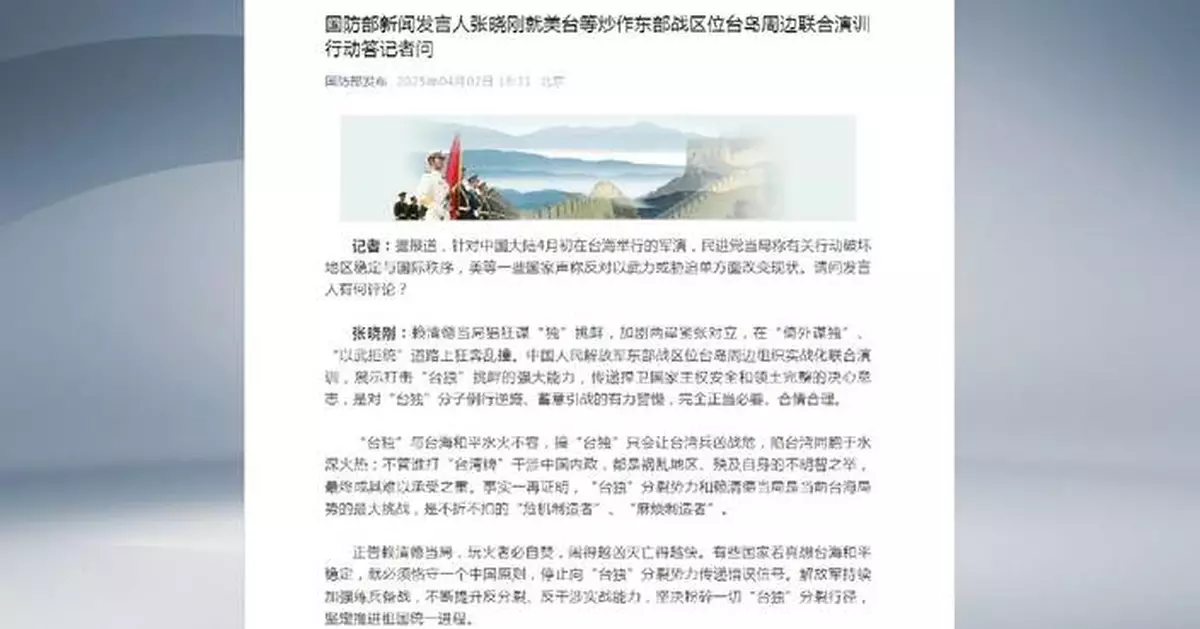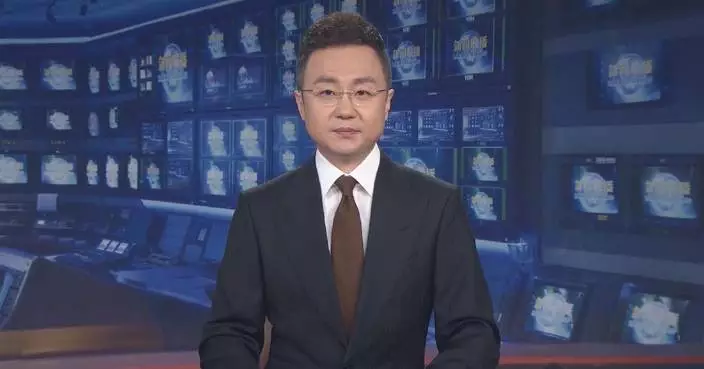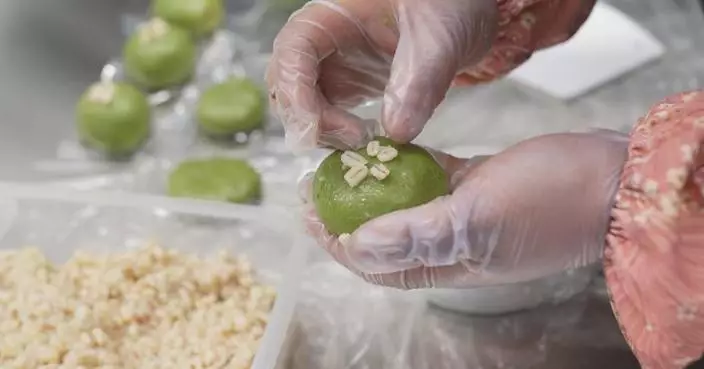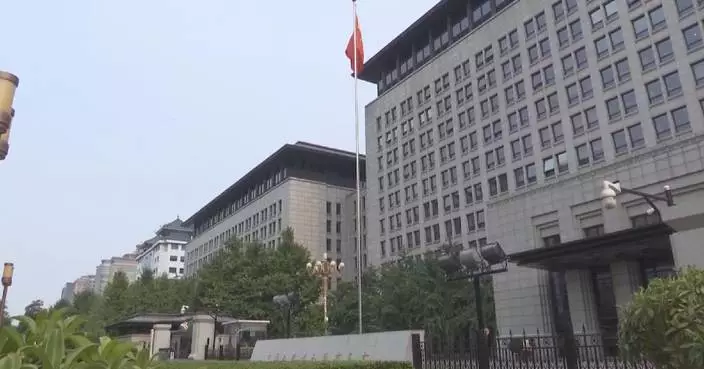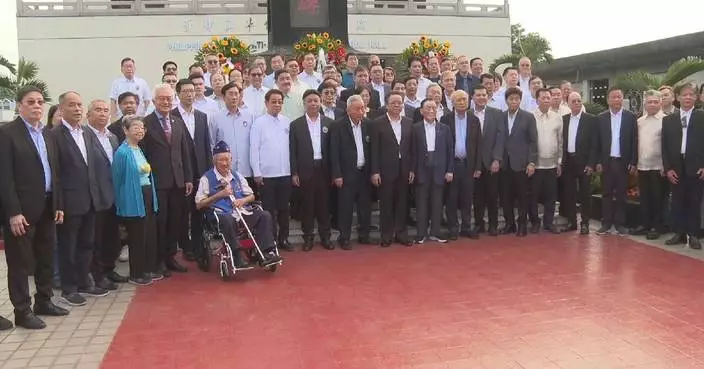A spokesperson for China's Ministry of National Defense on Wednesday said that the latest multi-subject drills conducted by the Chinese People's Liberation Army (PLA) in waters around the Taiwan Island are completely legitimate, necessary and reasonable.
Zhang Xiaogang made the remarks in response to a relevant query.
The PLA Eastern Theater Command on Tuesday conducted multi-subject drills in waters to the north, south, and east of Taiwan Island.
On Wednesday, the Shandong aircraft carrier task group was deployed to simulate strikes on ground and maritime targets in areas to the east of the island.
In his remarks, Zhang condemned the Taiwan authorities led by Lai Ching-te for recklessly carrying out provocative actions to seek "Taiwan independence," and escalating tensions between the two sides of the Taiwan Strait.
The PLA's drills demonstrated the determination and will to safeguard national sovereignty and territorial integrity, serving as a strong deterrent to separatists who intentionally instigate conflicts, Zhang said.
Noting that "Taiwan independence" and peace in the Strait are as irreconcilable as fire and water, Zhang said that those who play with fire will eventually get themselves burned.
Zhang noted that the more provocations they make, the faster they will meet their demise.
The spokesperson also said that certain countries -- if they truly wish for peace and stability in the Strait -- must adhere to the one-China principle and stop sending wrong signals to the "Taiwan independence" separatist forces.
The PLA will continue to intensify military training and preparedness, enhance its real combat capabilities to counter secessionist attempts and foreign interference, resolutely crush all "Taiwan independence" separatist activities, and firmly advance the process of China's national reunification, Zhang said.
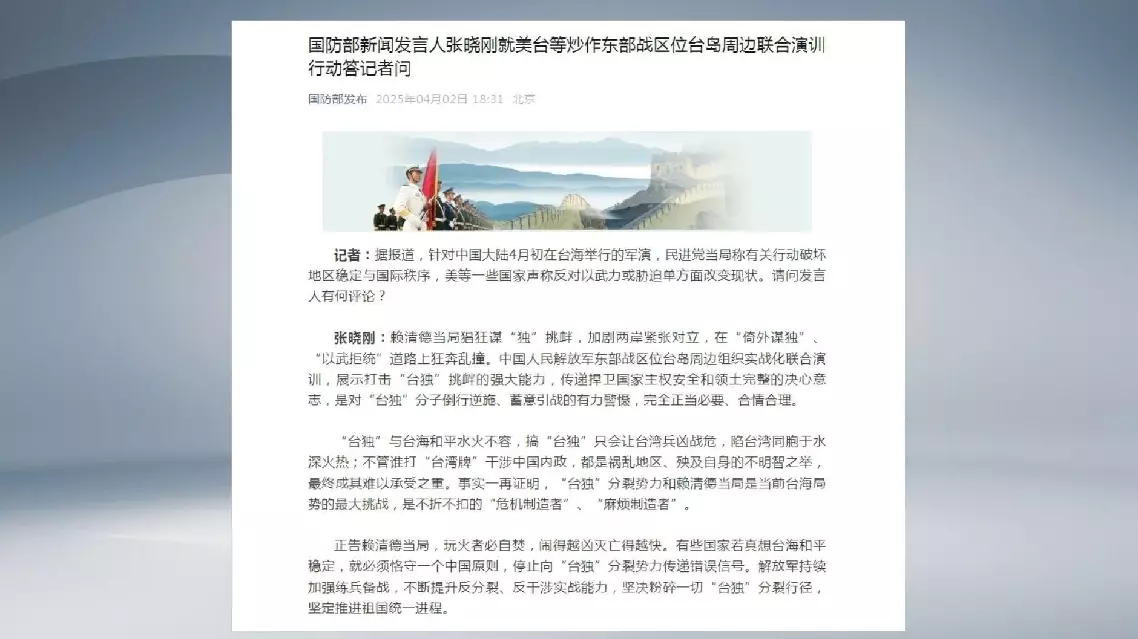
PLA's drills around Taiwan legitimate, necessary, reasonable: defense spokesperson
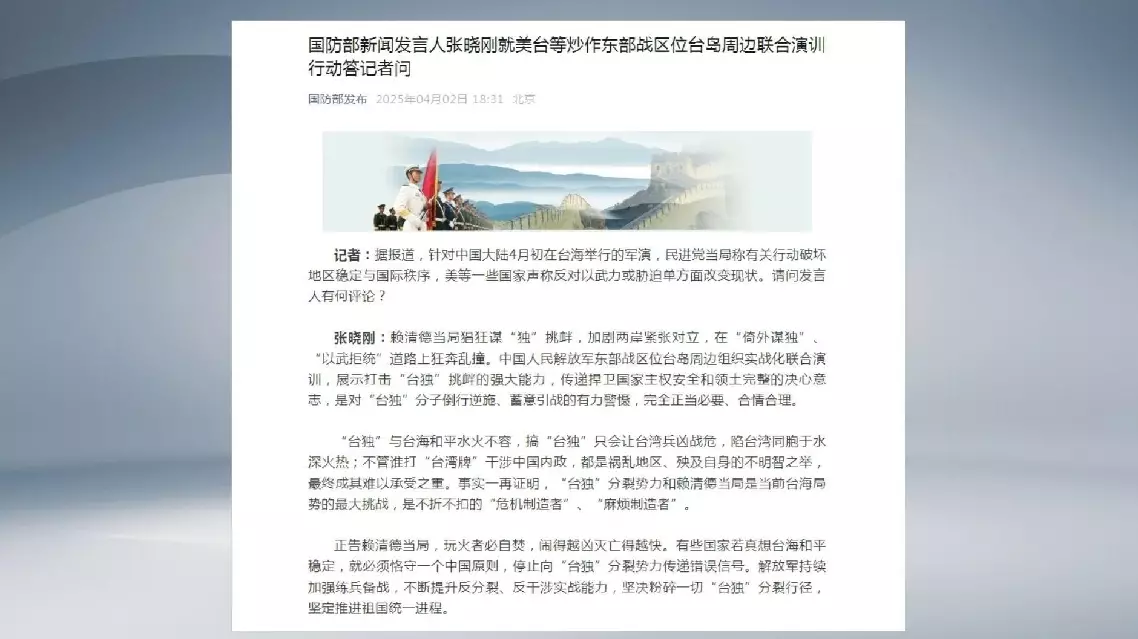
PLA's drills around Taiwan legitimate, necessary, reasonable: defense spokesperson
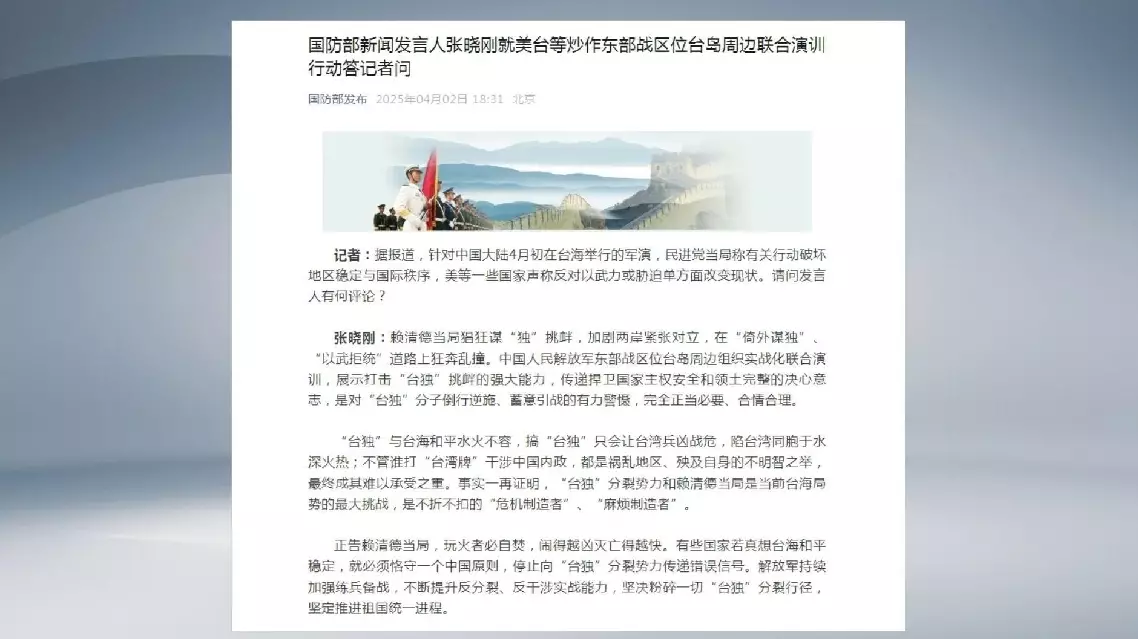
PLA's drills around Taiwan legitimate, necessary, reasonable: defense spokesperson
As the Qingming Festival approaches this Friday, various traditional folk activities have been held across China, celebrating the rich cultural heritage of the occasion.
With a 2,500-year history, Qingming Festival, or the Festival of Pure Brightness, observed in early April, uniquely combines ancestral worship with the celebration of spring. Falling on the 15th day after the spring equinox, this ritual-rich observance reflects China's enduring values of ancestral veneration and inspires deep introspection about what gives life meaning.
In Sijia Village, Huayin City, northwest China’s Shaanxi Province, a unique swing festival is held to mark the occasion. Eighteen different types of traditional swings, such as the spinning wheel swing, the Bagua swing reminiscent of a rotating carousel, and the balance swing designed for two people, have attracted many visitors.
Historically, Sijia Village served as a military post guarding the strategic Tongguan pass, a former mountain pass and fortress located south of the confluence of the Wei and Yellow Rivers. The swing tradition in the village has its origins in military training exercises like climbing and river crossing. The local swing culture further developed as regional trade flourished, eventually evolving into the "swing festival" that continues today.
"It's very exciting and tests your skill, endurance, and most importantly, your arm strength. You need to maintain balance," said Qu Xiangyang, a visitor.
In Rudong County, Nantong City, east China's Jiangsu Province, another traditional Qingming activity takes place - kite flying.
Flying kites as a way of making wishes is an age-old Qingming custom in this region. As a result, the Qingming Festival in Nantong is also known as the "Kite Festival."
The local Banyao whistling kite making skills is listed as one of the first national intangible cultural heritage items.
According to a folk culture expert, people traditionally write the names of diseases or misfortunes on paper, attach it to a kite, and release it into the sky. This practice is believed to drive away illness and disaster, while also serving as a way to make wishes.
In south China's Guangdong Province, a large tug-of-war competition is underway in Maoming City. Teams from different towns and streets are competing, attracting many locals to cheer on their teams.
Tug-of-war, which originated during the late Spring and Autumn period (770 BC - 476 BC), became part of Qingming customs during the Tang Dynasty (618-907). Emperor Xuanzong of the Tang Dynasty once organized large-scale tug-of-war competitions for the festival.
"Tug-of-war became very popular in the Tang Dynasty, even emerging as the national sport. It originated in the Jingchu region and later spread across the country. In ancient Lingnan (Southern China), tug-of-war games were a common tradition. Through these events, people seek to pray for peace, prosperity, and abundant harvests," said Yao Guojun, vice dean of the College of Arts and Law, Guangdong University of Petrochemical Technology.
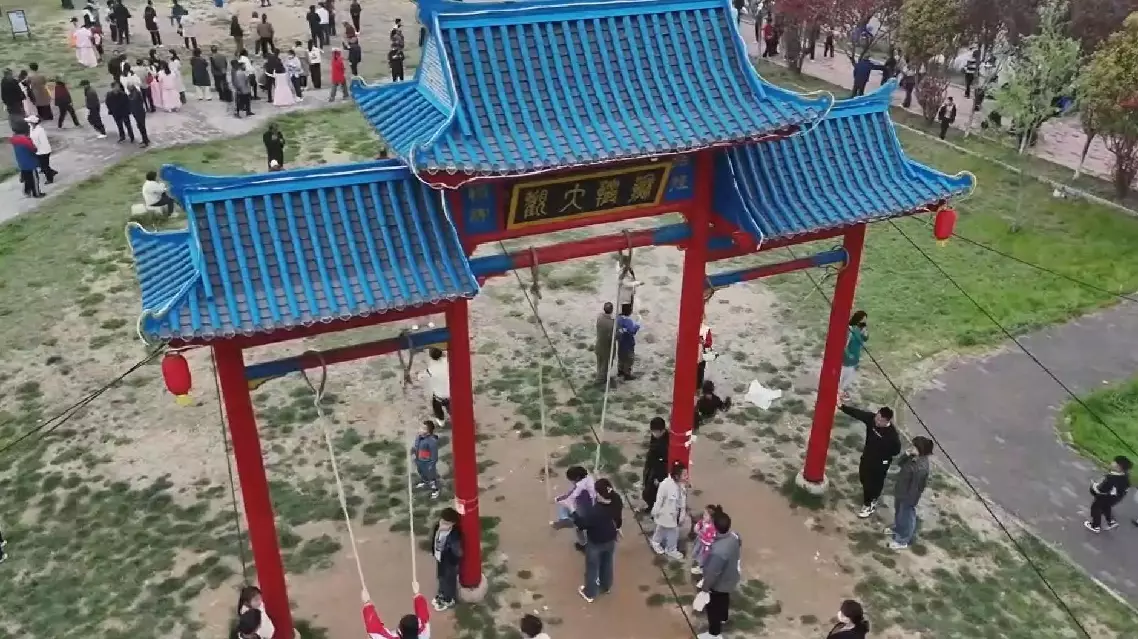
Traditional folk activities held for Qingming Festival





